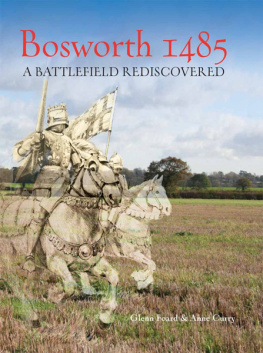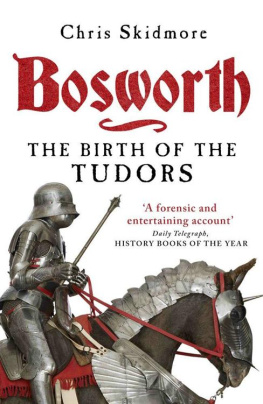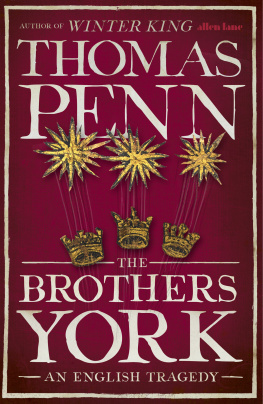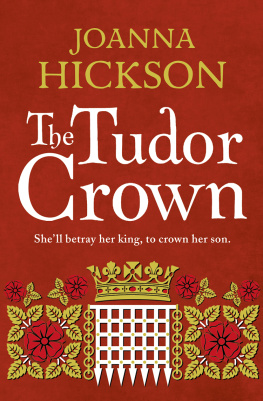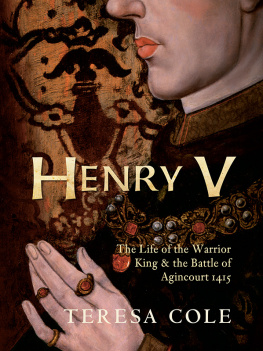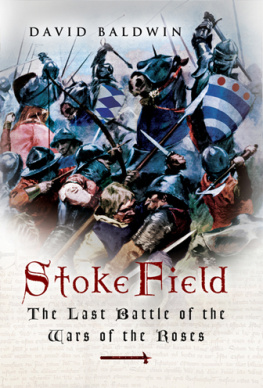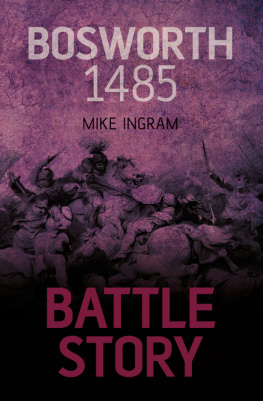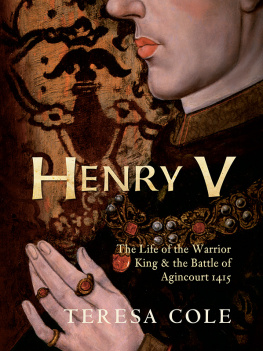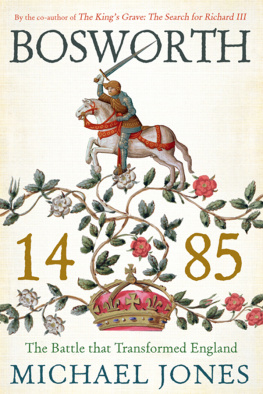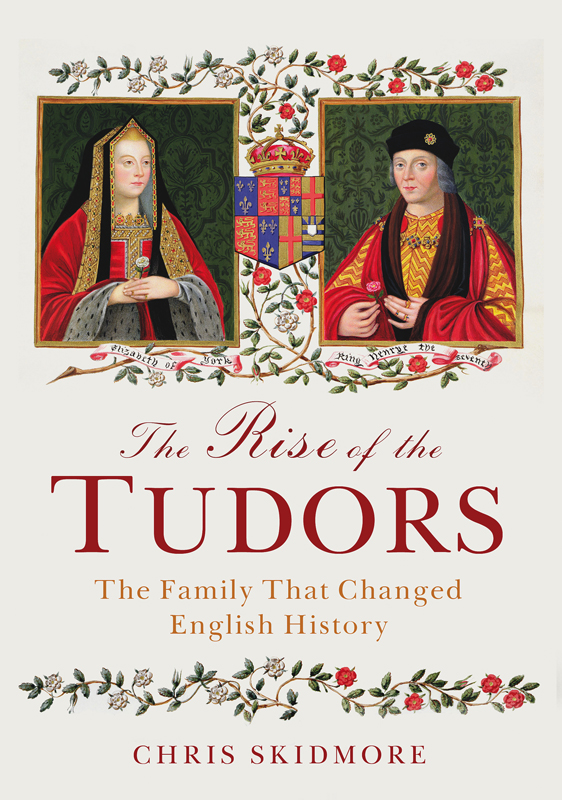
The author and publisher have provided this e-book to you for your personal use only. You may not make this e-book publicly available in any way. Copyright infringement is against the law. If you believe the copy of this e-book you are reading infringes on the authors copyright, please notify the publisher at: us.macmillanusa.com/piracy.
In memory of Lesley Boatwright
CONTENTS
ILLUSTRATIONS AND MAPS
MAPS
APPENDIX
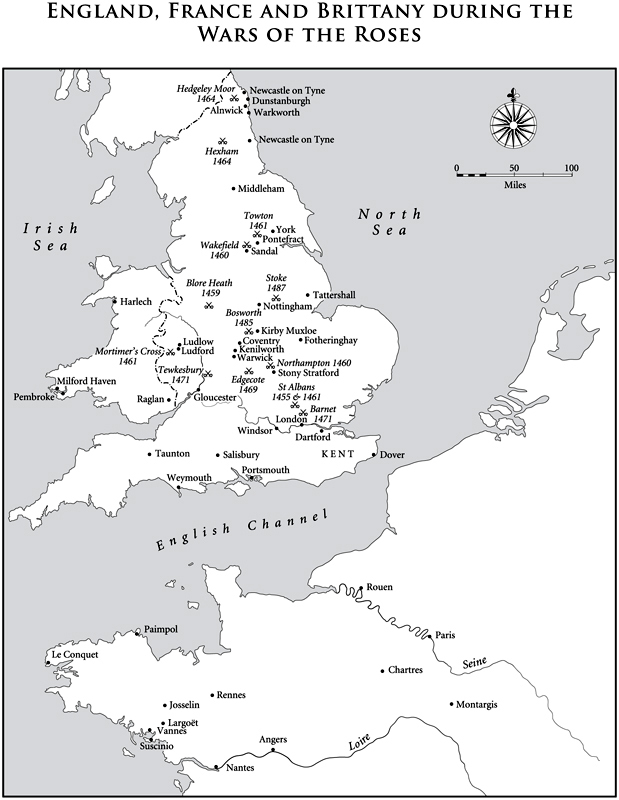
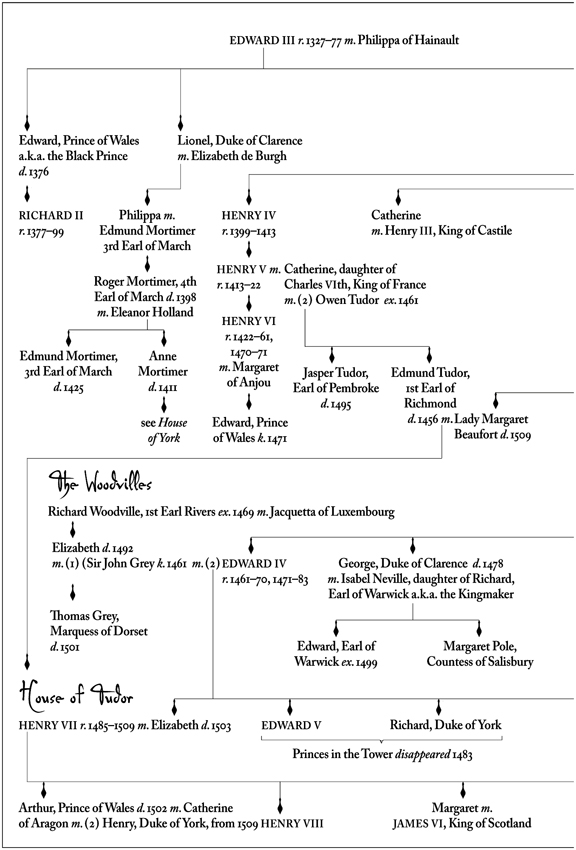
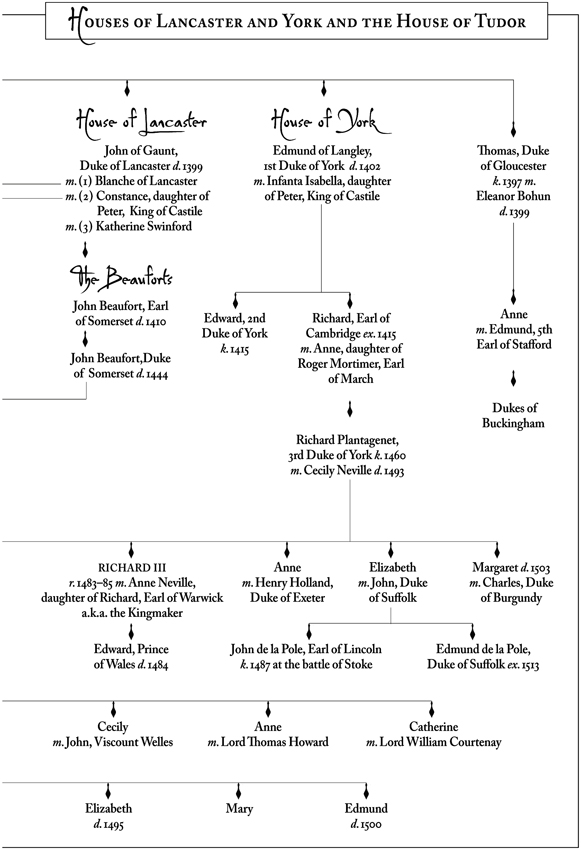
INTRODUCTION
The history of a battle is not unlike the history of a ball. Some individuals may recollect all the little events of which the great result is the battle won or lost, but no individual can recollect the order in which, or the exact moment at which, they occurred, which makes all the difference as to their value or importance.
The Duke of Wellington, 8 August 1815
The date 1485 is seared into our national memory. Learnt by every school pupil, there is good reason to consider it one of the key events in British history. The battle of Bosworth, where the twenty-eight-year-old Henry Tudor defeated Richard III, was the moment when the Tudor dynasty was born.
Yet for all its fame as one of the most significant battles in British history, Bosworth remains tantalisingly elusive to the historian. Compared to other battles that took place during the civil wars of the fifteenth century, contemporary accounts of the battle are relatively sparse. This book attempts to take a fresh look at the battle, drawing together the widest possible range of sources, as well as investigating unpublished manuscripts which shed new light on the period. This has meant returning to the original documents, including the handwritten manuscript of Polydore Vergils Anglia Historia , one of the principal sources for the battle now remaining in the Vatican Library in Rome, in order to thread together as accurately as possible what might have occurred during the morning of 22 August 1485.
Shakespeares depiction of Richard III crying out on the battlefield, offering to surrender his kingdom for a horse, has long been exposed as the stuff of legend. What is often less clear is that Bosworth was won not merely by the actions of Henry or Richard on the battlefield, but through the actions, or inaction, of others present on that fateful day. I have sought to understand these individuals separate motivations, what drove each man to take up arms against his king, in order to comprehend why Henry Tudor, against all the odds, was able to defeat Richards army, a force twice the size of his meagre band of exiles, French mercenaries and Welshmen. In the centuries since Henry was crowned on the battlefield we have accepted a version of history which, from the moment that Richards body lay still warm in the Leicestershire mud, was written exclusively by the winning side. Bosworth quickly became the providential story of good versus evil, of the innocent Henry, a David-like figure facing down the monstrous goliath of the tyrant Richard III. The truth, as this book attempts to reveal, was far more complex.
Yet rather than focus exclusively upon the movements of the battle itself, which, as Wellington wisely noted, can rarely be recalled with definitive certainty, The Rise of the Tudors is intended to be more than just a detailed account of the battle alone. It charts the rise of the Tudors, at times an improbable saga of how Henry Tudor came to be crowned King of England. In doing so the book reveals a narrative of triumph against adversity, itself a gripping tale of how one man survived persecution and endured exile to seize the throne. Henrys journey to Bosworth is one of extraordinary perseverance; driven to flee to Brittany aged only fourteen, he spent his formative years as a prisoner, locked away in distant castles. It was a life filled with uncertainty and danger. On several occasions, Henry was forced suddenly to escape from one country to another, a fugitive whose claim to the throne would have seemed at best laughable.
The rise to power of the Tudors, a humble Welsh gentry family, in the space of just fifty years, was nothing less than remarkable. From Owen Tudor, a servant at the royal court who wooed the widowed Catherine of Valois, Henry Vs queen, to the plight of their children, Edmund and Jasper Tudor, who rose through the ranks at court to join the most important noblemen of the realm, the Tudor story is one of romance and hardship. It is also one set against a backdrop of a bloody and brutal age, in which the politics of the fifteenth century gave way to civil strife, with the feuding houses of Lancaster and York descending into war. It was a time when men found themselves forced to make a choice between rival camps, when the wrong choice could lead to ruin or death. The Tudors were no exception. Henry Tudors mother, the wily Margaret Beaufort, found herself on either side of the dynastic divide, before seizing her moment to help place her own son on the throne. From the instability caused by the vacuum of power left by Henry VI, through the battles of the 1460s and 1470s, Henry Tudors survival lay not only in his mothers hands, but those of his dedicated uncle Jasper, who, almost like a surrogate father, ensured the boys survival and masterminded his eventual triumph. With the ascendancy of Richard III, Henry found his own claim to the throne bolstered by hundreds of exiles from the English court; upon landing in Wales, he was joined on his march through the country by other leading figures such as Rhys ap Thomas. The Rise of the Tudors charts their stories too, along with the many other actors on the stage who came together to forge the Tudor dynasty.
It is important to remember that Bosworth was not simply a culmination of Henry Tudors victorious campaign, but is also the ending to the tale of how Richard III lost a kingdom. Henrys success owed everything to the tragic fate of the last Plantagenet king, whose rule seemed doomed from the moment he decided to seize the throne from his young nephew Edward V, right down to the dying moments of the battle, when Richard found himself deserted by his supporters and the king chose to throw caution to the wind and launch himself upon this young upstart pretender to his throne.
Since I began researching the book, for a battle fought more than half a millennium ago, events have moved fast. In 2010 news broke that the battle site had been rediscovered two miles down the road from where it had been mistakenly believed to have been fought. More importantly, new finds relating to the battle, including more than thirty cannon balls, the largest collection of shot ever discovered from a medieval conflict in Europe, had been unearthed in the fields around the new site of the battle. Among the most treasured finds was a boar badge as the emblem of Richard III, a clear sign of his armys presence in the location. It renewed a sense of determination in my own mind that the story of the battle was only just beginning to unfold. During the course of my research, which has taken me across the archives in Vannes, Nantes and Paris, returning to the remote castles where Henry Tudor was imprisoned during his youth, such as the Tour dElven, still hidden away in deep forest miles from habitation, I have sought to recreate as best as possible Henrys own experiences. By making use of the surviving French material detailing Henrys exile, down to the black fur gown he was given, I have tried to bring Henry to life, while recognising his utter dependence on his foreign hosts. Charting Henrys remarkable march through Wales in August 1485, one of the few successful foreign invasions of Britain, I attempted to recreate the journey myself, admittedly with the aid of my car, starting at the terrifyingly sheer cliffs of the Pembrokeshire coastline in sleeting rain, and ending up at the battle re-enactments of the Bosworth Battlefield Centre. My research even took me to the top of St Margarets Church in Stoke Golding, clinging to a thirty-foot wooden ladder inside its tower as I peered out from the same spot where onlookers had watched the battle unfold over 500 years before.


